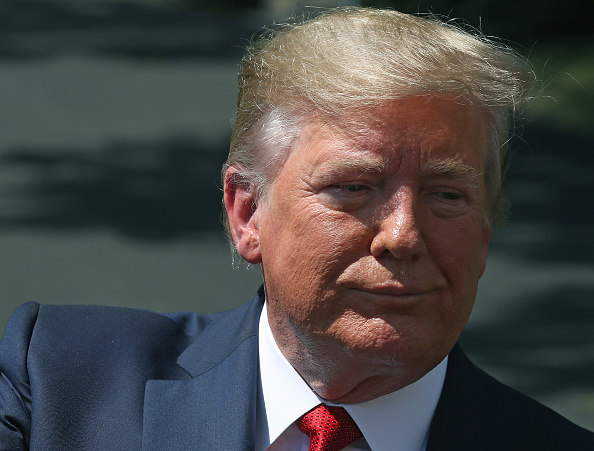So how does a president like Donald Trump try to cement the support of Senate Republicans in the impeachment battle?
It’s simple, and obvious, if you think about it: money. Cold, hard cash.
“Trump is tapping his vast fundraising network for a handful of loyal senators facing tough reelection bids in 2020,” Politico reported on Thursday. “Each of them has signed onto a Republican-backed resolution condemning the inquiry as “unprecedented and undemocratic.”
The political website says the Trump re-election campaign sent an online appeal Wednesday to past donors. It urged them to contribute to a fund that would be divided between Trump and three senators: Cory Gardner (CO), Jony Ernst (IA) and Thom Tillis (NC), all of whom face re-election challenges while supporting a Republican resolution condemning the impeachment inquiry.
“With his new push, Trump is exerting leverage over a group he badly needs in his corner with an impeachment trial likely coming soon to the Senate — but that also needs him,” Politico says, adding that the president’s fundraising operation “has raked in over $300 million this year.”
Others on Trump’s cash-for-support list include Sen. David Perdue (GA) and the Senate Leadership Fund, a Republican super PAC that Politico describes as “closely aligned with Majority Leader Mitch McConnell and party leadership.”
Trump’s push for backing comes as Senate Republicans appear to be taking the House impeachment inquiry more seriously — and for some, that’s worrisome.
“While no Senate Republican has said the charges against Trump rise to the level of being an impeachable offense,” says The Hill, “many have expressed concern over the drip-drip of damaging revelations.”
A Republican senator who asked to remain anonymous told The Hill that he and his colleagues are “becoming much more aware of the process and that’s because of the situation we’re in with the House,” while adding that he believes Trump “will have the support he needs to get through this.”
Trump’s new fundraising drive for supportive senators left out at least two: Susan Collins of Maine, who has on occasion criticized the president’s words and actions, and Martha McSally of Arizona, who has displeased Republican leaders over her fundraising methods.
“Trump’s interest in assisting down-ballot candidates has heartened Republican strategists who worry that the 2020 election is turning out to be a re-run of the disastrous 2018 midterms, when GOP candidates were vastly out-raised,” Politico says.
That’s what Trump is trying to prevent, and it might work.
As Scott Reed, senior political strategist for the U.S. Chamber of Commerce, told Politico, Trump “has the ability to turn on the money spigot like no one else.”



